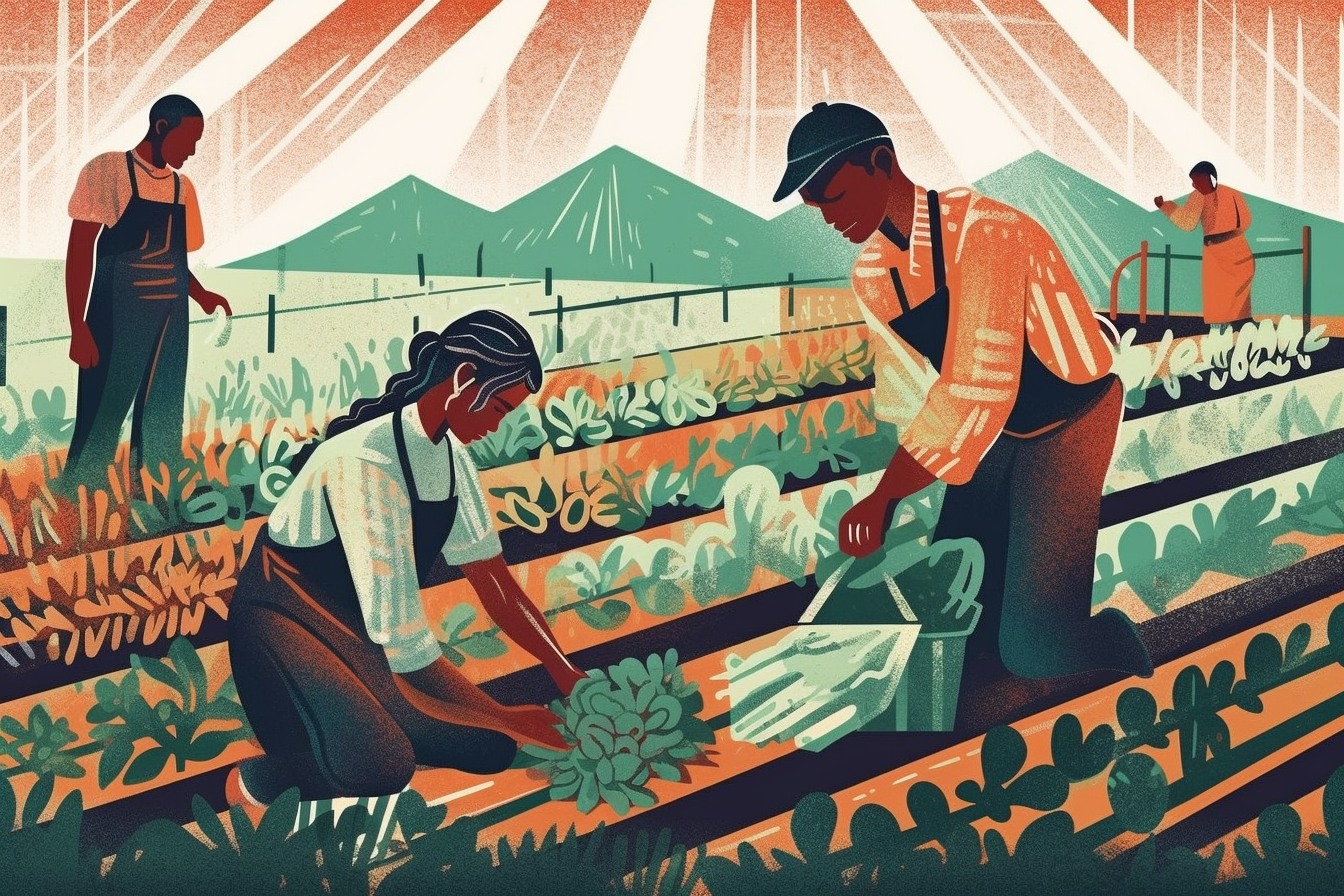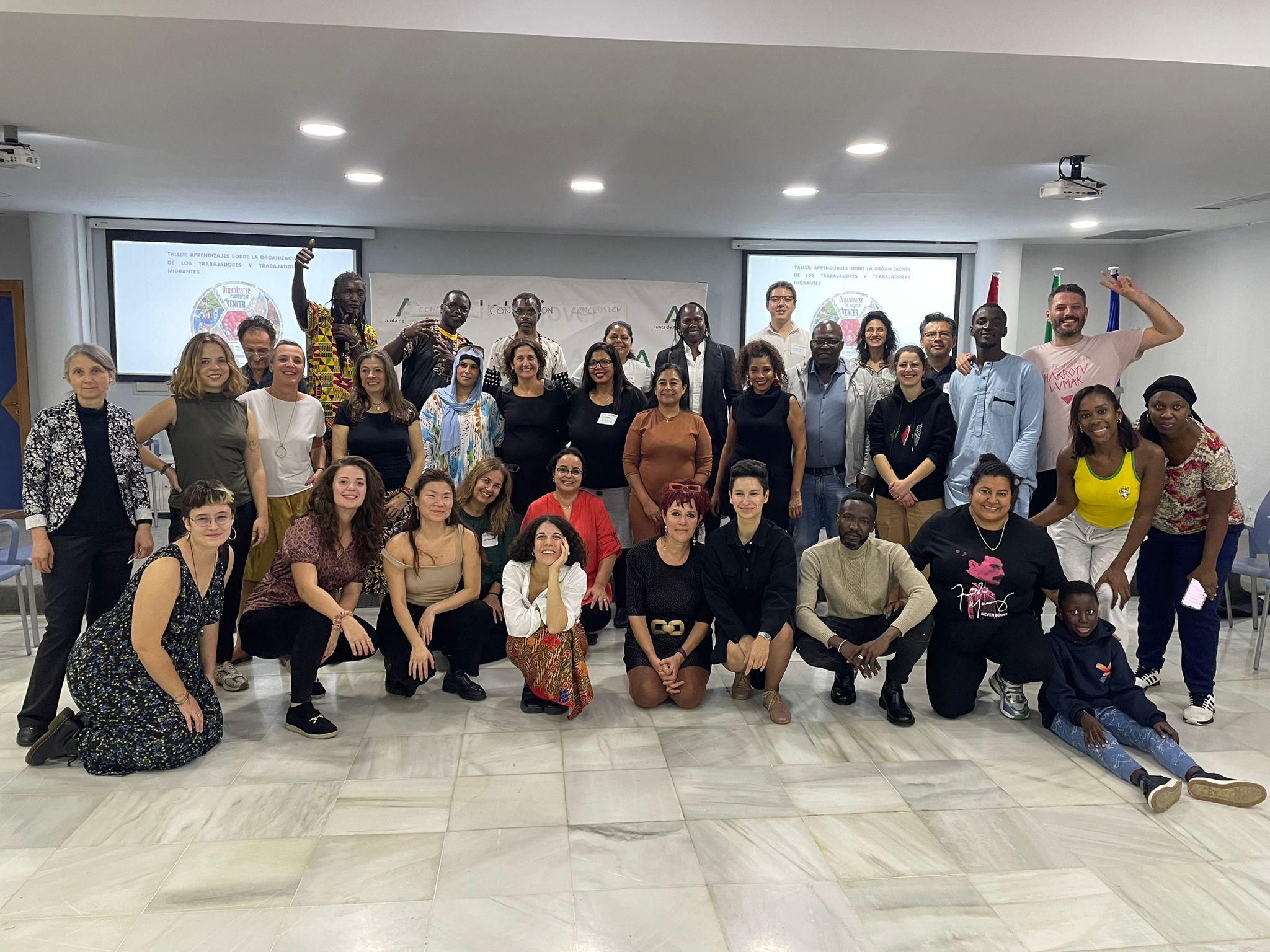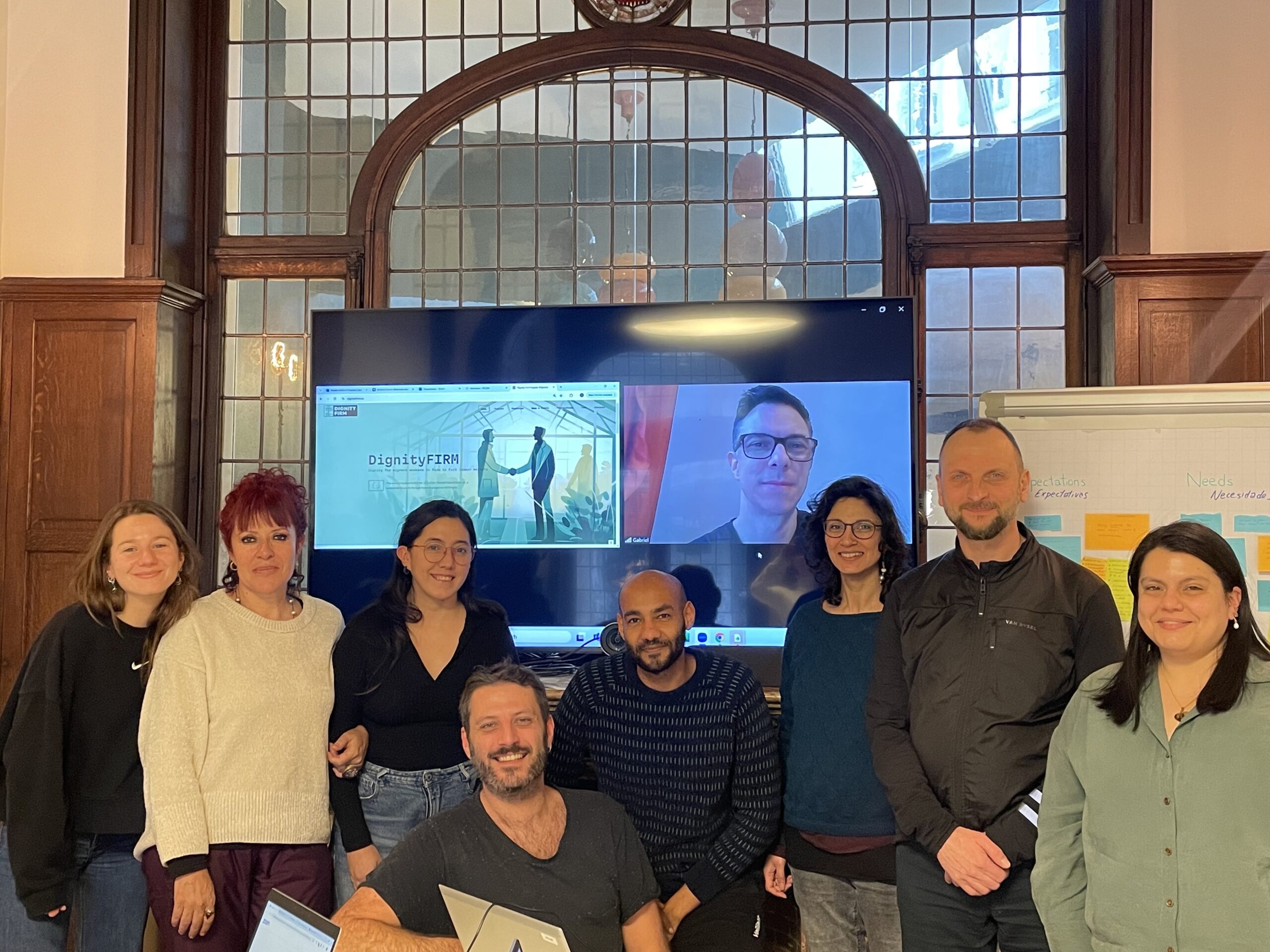
28 Nov Reflections on the 16th European Public Health Conference: Our food, our health, our earth – but where are the workers?
Reflections on the 16th European Public Health Conference: Our food, our health, our earth – but where are the workers?
By: Dr. Nora Gottlieb, WP2, Bielefeld University, Department of Population Medicine and Health Services Research
The topic of this year’s European Public Health conference from 9.-11. November in Dublin was “Our Food, Our Health, Our Earth: A Sustainable Future for Humanity” and so I went there with mixed feelings. When Public Health addresses food-related topics, it often ends up teaching people about healthy diets and healthy choices, thus unloading the responsibility for bad health outcomes and health inequalities on the individual while obscuring the underlying systems and structures.
However, I was positively surprised. Many talks and discussions addressed the very structural aspects of food, and the ways in which they are currently set up to produce health inequities. For instance, Melissa Mialon talked about the corporate political activities of the food industry (1); Benjamin Wood explained how global financing and investors shape foods and diets (2); Mark Petticrew put food-related health inequalities in the wider context of the commercial determinants by pinpointing similar strategies by the tobacco, the fossil fuel and the food industry to undermine policy change (3); Anant Jani described how his project FEAST aims to incentivize political decision-making and food system actors to generate health rather than illness; and Amandine Garde held a fiery talk about the role of law in pushing food systems toward sustainability and better health, against corporate interests and power (4). So, while there were surely also those who talked about healthy diets and physical exercise – these very political takes set the tone of the conference for me and made me very happy.
I was missing one critical aspect in all the discussions though: the workers.
Most speakers referred to sustainability – and to a lesser extent also to systemic resilience – as an overarching concept and goal. Yet, sustainability was conceptualized as comprised of two components: environmental sustainability and healthy diets. The health, protection, and dignity of the workforce that is needed to produce food, day in day out, in a sustainable fashion remained a blind spot. (It is exactly this blind spot that we will address within the framework of the project DignityFIRM: decent work, social and health protection, and dignity for migrant workers in farm-to-fork labour markets.) Those talks that addressed worker health, or specifically migrant worker health, could be found in the conference’s “niche tracks” such as Migration, LGBTQI+, and Minority Health.
Ultimately, my main takeaways from this year’s EPH conference are thus that large parts of the public health community in Europe are turning encouragingly political in that they are starting to direct a critical gaze “upstream” at the systems and structures that shape the conditions for leading healthy lives for all of us – down to the food on our plates. Still, there is work to do to bring some topics, like migrant workers’ conditions and health, out of their niche and to show that they are yet another arena in which the same unequal and unhealthy systems and structures play out. As such, they are not only part of the same problem; they are also part of the same struggle, a joint struggle, for systemic transformation toward more sustainability, equity and social justice.
- See, e.g., Mialon M, Mialon J (2018). Analysis of corporate political activity strategies of the food industry: evidence from France. Public Health Nutrition; 21(18). DOI: https://doi.org/10.1017/S1368980018001763; or Mialon M, Swinburn B, Allender S, Sacks G (2017). ‘Maximising shareholder value’: a detailed insight into the corporate political activity of the Australian food industry. Australian and New Zealand Journal of Public Health; 41(2). DOI: https://doi.org/10.1111/1753-6405.12639
- See, e.g., Wood B. et al. (2023) What is the purpose of ultra-processed food? An exploratory analysis of the financialisation of ultra-processed food corporations and implications for public health. Globalization and Health; 19;85. DOI: https://doi.org/10.1186/s12992-023-00990-1; or Wood B, Williams O, Becker P, Sacks G (2023). Behind the ‘creative destruction’ of human diets: An analysis of the structure and market dynamics of the ultra-processed food manufacturing industry and implications for public health. Journal of Agrarian Change; 23(4). DOI: https://doi.org/10.1111/joac.12545
- See, e.g., Maani N, Petticrew M, Galeo S (2023). The Commercial Determinants of Health. Oxford University Press.
- See, e.g., Baker et al. (2023) The political economy of infant and young child feeding: confronting corporate power, overcoming structural barriers and accelerating progress. Lancet; 401(10375). DOI: https://doi.org/10.1016/ S0140-6736(22)01933-X; or Tatlow-Golden, M, Garde A (2020). Digital food marketing to children: exploitation, surveillance and rights violations. Global Food Security; 27(100423). DOI: https://doi.org/10.1016/j.gfs.2020.100423
Latest News
- The Sevilla Manifesto: Voices of migrant workers from Sevilla and beyond
- “From Being Studied to Leading Change”. Participatory Action Research as a Transformative Political Tool
- Morocco-EU Relations: What’s at Stake for Farm to Fork Workers? Social Transformations and Food Security
- Examining migration and work precarity: what is the added value (and potential downside) of a public health perspective?
- The UIZ (Université Ibn Zohr) team met the socialist group at the parliament in Morocco


